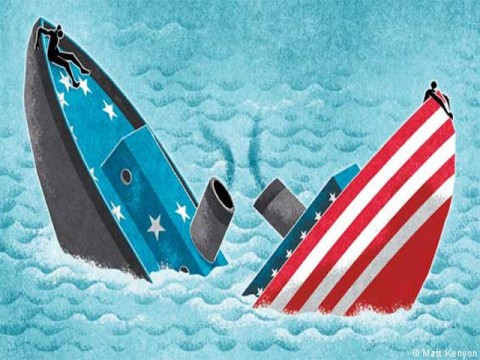By Tarek Masoud and Wael Nawara
After working with Egypt’s president, Mohammad Morsi,
to broker a ceasefire between Israel and Hamas last month, President Barack
Obama reportedly came
away impressed by his fellow former university professor’s pragmatism and
“engineer’s precision.” But whatever
the Egyptian president’s intellectual gifts, a good memory is clearly not one
of them. After having barely eked out in a victory in last June’s presidential
election, with a significant assist from liberal and left-leaning
revolutionaries who saw Morsi’s opponent as a throwback to the old regime, the
new president has thumbed his nose at his erstwhile allies and his promises of
democracy. On Nov. 22, he issued a decree granting himself extraordinary,
unquestioned authority, and last week his allies in the constitutional assembly
rammed through a draft constitution that includes expanded presidential powers,
protections for the military, and a highly illiberal social agenda.
Egypt’s liberals—often rightly maligned as hapless and
uncoordinated—have seized the opportunity presented to them by Morsi’s
overreach, and surprised everyone with a series of massive protests in Tahrir
Square. And elsewhere in Egypt, clashes between opponents of the president and
his supporters have resulted
in at least two deaths and the torching
of several Muslim Brotherhood offices. But on Saturday, Morsi’s allies reminded us why the
Muslim Brotherhood is so often referred to as Egypt’s most organized and
popular force, convening a gargantuan rally of their own in front of Cairo
University. Estimates of the size of the Islamist crowd—much of which was
bussed in from outside of the city, and which at one point reportedly chanted,
“Oh
Badia [the Muslim Brotherhood’s leader], you command us and we obey!”—varied. The Brotherhood’s political wing claimed
that more than 2
million people turned out to support the presidentbut independent observers pegged the number at closer
to 200,000. After the
demonstration, hundreds of Islamist activists besieged the country’s
constitutional court to prevent the judges of that body from attempting to
countermand the president’s actions. The man who once promised to be the
president of all Egyptians has proven uncommonly adept at dividing them.





.jpg)












.jpg)
